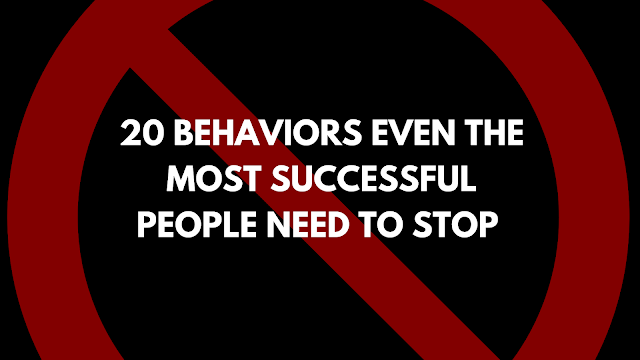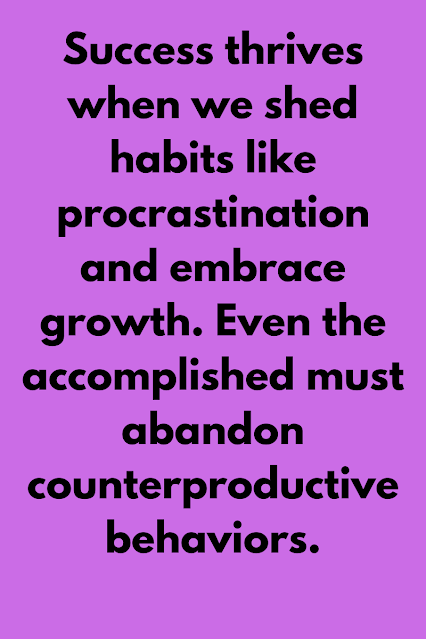Introduction Most people believe attraction works through force. They push harder, talk louder, and chase faster, assuming that intensity will bend reality in their favor. When results don’t arrive, they double down—more hustle, more affirmation, more noise. Ironically, this is often the exact reason things don’t work out. Attraction rarely responds to pressure. It responds to alignment. What looks “dumb” from the outside—moving slowly, staying calm, doing less—often works better than frantic effort. The most effective people don’t appear desperate for outcomes. They behave as if good results are a natural extension of who they are. Below are fifteen quiet, unglamorous principles that attract opportunities, success, and clarity without force. None of them are flashy. All of them work. 1. Acting as if the Goal Is Already Normal The human brain resists what feels rare or impossible. When you treat a goal as extraordinary, your behavior becomes unstable—sometimes ov...
Introduction
Success is a journey, not a destination. Even the most accomplished individuals have areas where they can improve. In a world that is constantly evolving, the ability to adapt and refine one's behavior is crucial for sustained success. Renowned leadership coach Marshall Goldsmith has identified several behaviors that even the most successful people should consider eliminating from their repertoire. Let's delve into these behaviors and explore why letting go of them is essential for personal and professional growth.20 Behaviors Even the Most Successful People Need to Stop
1. Winning too much:Successful individuals are often driven by a desire to win. However, when winning becomes an obsession, it can lead to unnecessary conflicts and strained relationships. Learning to choose battles wisely and valuing collaboration over competition is key.
2. Adding too much value:
Successful people may have a wealth of knowledge, but constantly adding their perspective to every situation can stifle others' creativity and growth. Empowering others by allowing them to contribute their ideas fosters a more inclusive and innovative environment.
3. Passing judgment:
The most successful people understand the importance of empathy. Passing judgment not only damages relationships but also limits one's ability to understand different perspectives. Cultivating an open mind and withholding judgment allows for richer connections and more effective collaboration.
4. Making destructive comments:
Words have the power to uplift or destroy. Even the most successful individuals need to be mindful of their language. Constructive criticism is essential, but destructive comments can erode trust and create a negative work environment.
5. Starting with "No," "But," or "However":
Successful people may be accustomed to taking charge, but starting a conversation with a negative can hinder effective communication. Shifting towards a more positive and collaborative approach can lead to better outcomes and improved relationships.
6. Telling the world how smart we are:
Humility is a virtue that even the most successful people should embrace. Constantly showcasing intelligence can alienate others and hinder the learning process. Focusing on shared success and acknowledging the contributions of others fosters a more cohesive team.
7. Speaking when angry:
Anger can impair judgement and lead to unfortunate decisions. Even the most successful individuals need to recognize the importance of stepping back, reflecting, and responding with a calm and collected demeanor, promoting healthier communication.
8. Discontentment or the request to elucidate potential challenges
Although critical thinking is essential, an excessively pessimistic outlook can impede innovation. Individuals achieving success should promote a positive and solution-focused mindset, fostering an atmosphere conducive to the thriving of ideas.
9. Withholding information:
In an era where information is power, withholding it can lead to a lack of trust and collaboration. Transparency fosters a culture of openness and enables everyone to work towards shared goals more effectively.
10. Failing to give proper recognition:
Even the most successful individuals often attribute their success to teamwork. Failing to acknowledge the contributions of others can create resentment and hinder a positive work culture. Giving credit where it's due builds trust and motivates the team.
11. Claiming credit that we don't deserve:
Integrity is a cornerstone of success. Taking credit for others' work may bring short-term gains but erodes trust in the long run. Acknowledging the efforts of the entire team ensures a more genuine and collaborative work environment.
12. Making excuses:
Success requires accountability. Even the most accomplished individuals need to resist the temptation to make excuses. Taking responsibility for mistakes and learning from them is a sign of strength and resilience.
13. Clinging to the past:
Success often breeds nostalgia for past achievements. However, holding onto the past can prevent individuals from embracing new opportunities. A forward-thinking mindset is essential for continued success and personal growth.
14. Playing favorites:
Favouritism can create a toxic work environment. Even the most successful leaders need to be conscious of treating everyone fairly and fostering a culture where merit is recognized and rewarded.
15. Refusing to express regret:
Apologizing is a sign of strength, not weakness. Even the most successful people make mistakes, and expressing regret when appropriate builds trust and demonstrates humility.
16. Not listening:
Active listening is a skill that successful individuals should continuously hone. Ignoring others' perspectives can lead to missed opportunities and hinder innovation. Genuine listening fosters understanding and collaboration.
17. Failing to express gratitude:
Success is often a collective effort. Expressing gratitude for the contributions of others not only strengthens relationships but also contributes to a positive and supportive work culture.
18. Punishing the messenger:
Constructive feedback is essential for growth. Punishing those who deliver challenging news creates a culture of fear and stifles open communication. Encouraging honest feedback fosters a culture of continuous improvement.
19. Passing the buck:
Successful individuals should take responsibility for their actions. Passing the blame onto others undermines trust and damages credibility. Embracing accountability is a hallmark of true leadership.
20. An excessive need to be "me":
While authenticity is crucial, an excessive focus on individuality can hinder collaboration. Successful individuals should strike a balance between being authentic and adapting to the needs of the team, fostering a more cohesive and inclusive environment.
Although critical thinking is essential, an excessively pessimistic outlook can impede innovation. Individuals achieving success should promote a positive and solution-focused mindset, fostering an atmosphere conducive to the thriving of ideas.
9. Withholding information:
In an era where information is power, withholding it can lead to a lack of trust and collaboration. Transparency fosters a culture of openness and enables everyone to work towards shared goals more effectively.
10. Failing to give proper recognition:
Even the most successful individuals often attribute their success to teamwork. Failing to acknowledge the contributions of others can create resentment and hinder a positive work culture. Giving credit where it's due builds trust and motivates the team.
11. Claiming credit that we don't deserve:
Integrity is a cornerstone of success. Taking credit for others' work may bring short-term gains but erodes trust in the long run. Acknowledging the efforts of the entire team ensures a more genuine and collaborative work environment.
12. Making excuses:
Success requires accountability. Even the most accomplished individuals need to resist the temptation to make excuses. Taking responsibility for mistakes and learning from them is a sign of strength and resilience.
13. Clinging to the past:
Success often breeds nostalgia for past achievements. However, holding onto the past can prevent individuals from embracing new opportunities. A forward-thinking mindset is essential for continued success and personal growth.
14. Playing favorites:
Favouritism can create a toxic work environment. Even the most successful leaders need to be conscious of treating everyone fairly and fostering a culture where merit is recognized and rewarded.
15. Refusing to express regret:
Apologizing is a sign of strength, not weakness. Even the most successful people make mistakes, and expressing regret when appropriate builds trust and demonstrates humility.
16. Not listening:
Active listening is a skill that successful individuals should continuously hone. Ignoring others' perspectives can lead to missed opportunities and hinder innovation. Genuine listening fosters understanding and collaboration.
17. Failing to express gratitude:
Success is often a collective effort. Expressing gratitude for the contributions of others not only strengthens relationships but also contributes to a positive and supportive work culture.
18. Punishing the messenger:
Constructive feedback is essential for growth. Punishing those who deliver challenging news creates a culture of fear and stifles open communication. Encouraging honest feedback fosters a culture of continuous improvement.
19. Passing the buck:
Successful individuals should take responsibility for their actions. Passing the blame onto others undermines trust and damages credibility. Embracing accountability is a hallmark of true leadership.
20. An excessive need to be "me":
While authenticity is crucial, an excessive focus on individuality can hinder collaboration. Successful individuals should strike a balance between being authentic and adapting to the needs of the team, fostering a more cohesive and inclusive environment.


Comments
Post a Comment
Please do not add any spam link in the comment box